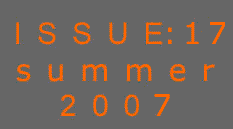

NUCNET NEWS
THE WORLD’S NUCLEAR NEWS AGENCY
20 June 2007/ News N°151
Areva Launches EPR Pre-Licensing Process in UK 20 Jun (NucNet): Areva has applied to UK regulators
for pre-licensing of its European pressurised water reactor (EPR)
design, saying its application is supported by major European
utilities.
Areva said today its application is accompanied by letters
of support from British Energy, EDF, E.ON UK, Iberdrola,
RWE npower
and Suez, who all consider the EPR to be a potential design
for new build nuclear in the UK. Other major utilities have
also
expressed serious interest in the EPR, the company said in
a statement.
Should Areva’s application be accepted, the three-year
pre-licensing project will be jointly managed with EDF. This
joint approach would bring together the combined strengths of
a vendor and a potential licensee, Areva said.
The Olkiluoto-3 EPR unit in Finland is under construction and
another is to be built at Flamanville in France. The EPR licensing
process is also under way in the US.
Pre-licensing is now known in the UK as generic design assessment
(GDA). The UK’s Health and Safety Executive (HSE) is hoping
to start the first stage of the GDA process – the initial
design assessment – in July 2007. This stage should be
completed by early 2008.
The UK government is holding a consultation exercise on nuclear
energy until mid-October 2007 and is likely to announce its final
policy conclusions related to potential new build towards the
end of the year.
The HSE says all nuclear related work, including generic design
assessment, is progressing “on a contingency basis” and
would be stopped if the government concludes it will not support
the building of new nuclear units.
>>
Related reports in the NucNet database (available to subscribers)
12 June 2007/ News N°143
New Lithuanian N-Plant of ‘Strategic Importance’ For
Baltic Region, Says PM
12 Jun (NucNet): Lithuania’s prime minister told a conference
on the development of the energy sector in the Baltic states today
that a new nuclear power plant planned for his country would have “huge
strategic importance for the whole region”.
Gediminas Kirkilas told the Baltic Regional Energy Forum* in Riga,
Latvia, that a draft law paving the way for the new plant is under
discussion in Lithuania’s parliament and is expected to be
adopted within the next few weeks.
Lithuania, Latvia and Estonia agreed in 2006 to collaborate in
building the plant, saying it would be jointly managed by each
of their respective national utilities. In March 2007, proposals
were announced for Poland to join the project.
Mr Kirkilas said: “The project is still in a very early
stage. At this moment in time we do not know how many and how large
(the) reactors will be… an international tender shall answer
these questions.”
Lithuania’s energy strategy for the period up to 2025 assumes
the new plant will be operational from 2015 – a target which
Mr Kirkilas said he believes is “ambitious but still reasonable”.
“In more global terms, I would like to stress that nuclear
energy is one of the most realistic and commercially feasible alternatives
to the traditional fossil fuels and could be instrumental in addressing
the challenges of climate change. Lithuania opts for nuclear energy
because it is crucial for our energy security and, dare I say it,
our national security,” Mr Kirkilas said.
EU energy commissioner Andris Piebalgs, who is also attending
the conference, said he supported a common energy agenda for the
Baltic states. A statement issued by Mr Piebalgs did not refer
to the joint nuclear power plant project but said he regarded the
conference as an important step in forging a common energy agenda
for the Baltics.
Mr Piebalgs also urged the Baltic states to continue to develop
renewable energy sources and ensure that the potential of the region
is fully exploited.
>> Related reports in the NucNet database
(available to subscribers)
26
June 2007/ News N°156
Environmental Study Process Submitted For Possible
New Finnish Unit
26 Jun (NucNet): Finnish power company Fortum
today submitted its Environmental Impact Assessment (EIA) programme
for the possible construction of a new reactor unit at the country’s
Loviisa nuclear power plant.
Fortum said the programme was submitted to the
Ministry of Trade and Industry. The company will now compile a
formal EIA report based on the programme and Fortum hopes that
report will be submitted to the ministry by the summer of 2008.
The EIA process is required before a possible application for
a decision in principle to build the new unit, the third at Loviisa,
which Fortum has said would have an electrical output of around
1,000 to 1,800 megawatts (MW), about 2,800 to 4,600 megawatts thermal.
Fortum said the programme was preparation for “the construction
of new, climate-benign and domestic energy production”, adding: “Curbing
climate change is one of society’s most critical challenges
and to combat it, energy conservation as well as investments into
renewable energy sources and carbon dioxide-free energy production,
such as nuclear power, is needed.”
On 31 May 2007 another Finnish power company, Teollisuuden Voima
Oy (TVO), submitted its EIA programme to the ministry for a possible
new reactor at the Olkiluoto nuclear power plant. TVO’s EIA
will also consider the construction of a 1,000 MW to 1,800 MW unit.
Meanwhile, a consortium of industrial and energy companies has
formed a new Finnish power company, Fennovoima Oy, with the aim
of pursing another project that could see a new reactor unit operational
in Finland by 2016.
>> Related reports in the NucNet database (available to
subscribers)
|





